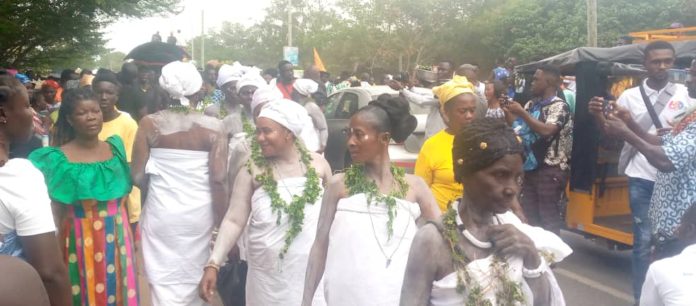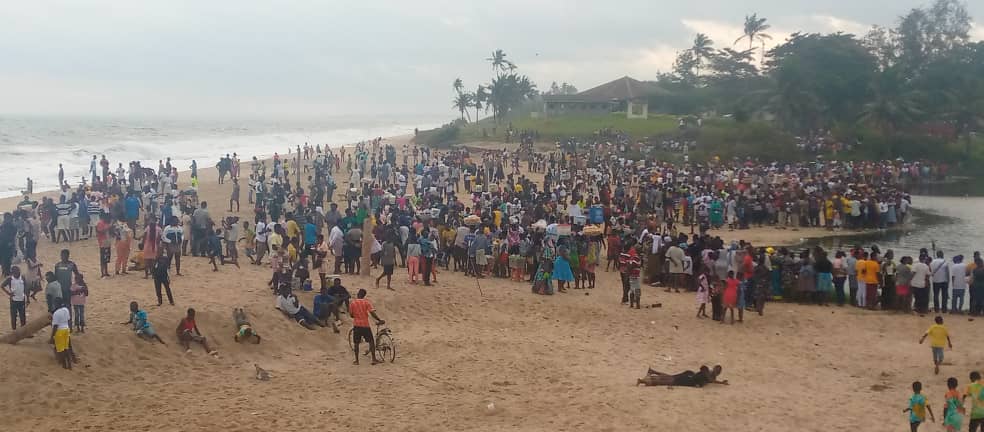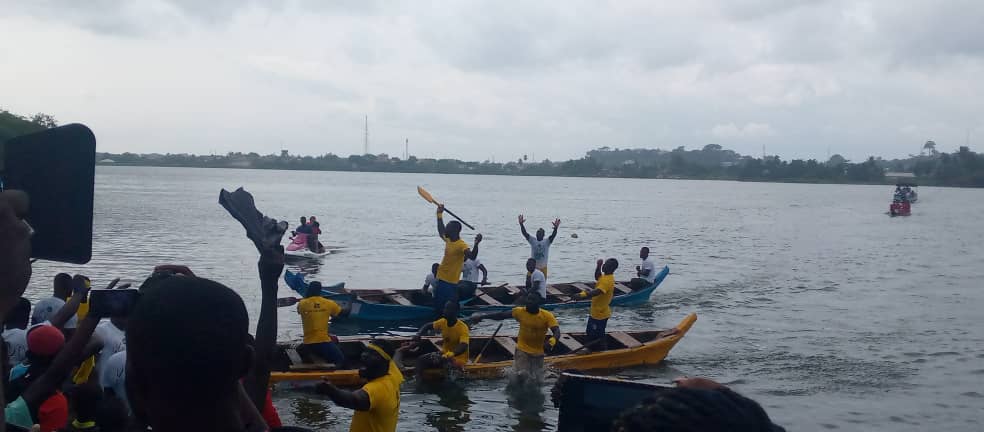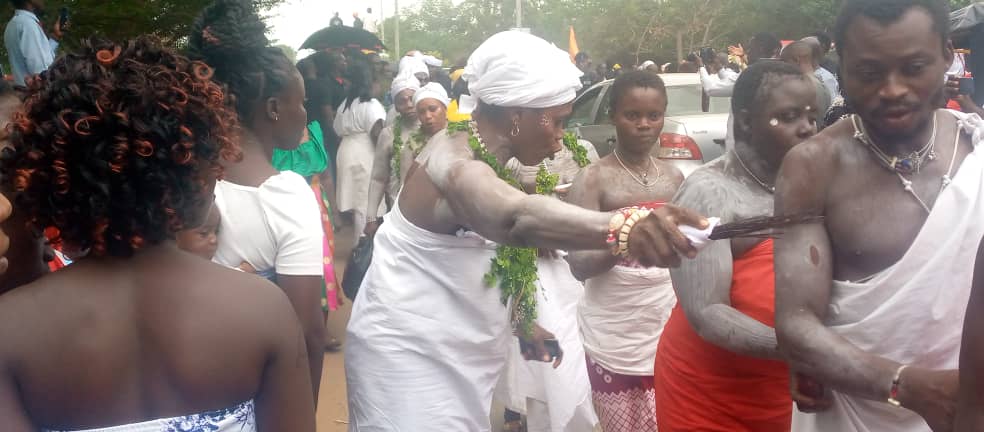People from all walks of life flocked to the banks of the Fosu Lagoon in Cape Coast to witness rites performed at the ridges of the lagoon to officially lift the one-month ban on fishing in the lagoon.
The rites mark the start of this year’s Oguaa Fetu Afahye, an annual festival celebrated by the chiefs and people of Cape Coast in the first week of September to honor their ancestors and bring together relatives both at home and abroad.
According to history, a plague once ravaged the Oguaa community and Cape Coast was thus founded as a fishing community by a man, Oguaa who gave his name to the place.
Because of the plague’s devastating effects, the people prayed to their gods before it subsided and the earth was purified. The word ‘fetu’ is a contraction of ‘efin tu’ in the local dialect which means clearing the dirt.
Oguaa Fetu Afahye festival is, therefore, a commemoration of that purification which saved the land from the plague and a show of gratitude to the 77 gods of the Oguaa Traditional Area.
The colorful event, which sought to invoke the gods’ and ancestors’ intervention and blessing for bumper fishing and crop harvests, attracted residents, visitors, and tourists.
This year’s rites ceremony began with a procession of chiefs and queen mothers, traditional priests, and priestesses through some principal streets of Cape Coast with brief stops at sacred shrines where purification ceremonies were performed.
The chiefs and queen mothers arrived at the banks of the lagoon dressed in black and red cloth with green bitter guard leaves tied around their heads and necks.
It was followed by the casting of the net of the Omanhen, the Paramount Chief, which was done three times, amidst the firing of muskets and incantations to determine whether there would be a bumper harvest for the coming year.
Libation was poured to ask for the blessing of the gods on Oguaaman, the Oguaa State, and its people for a fruitful and successful year.
A royal procession leading to the chief’s palace amid traditional music ended the colourful event as the traditional priests went to offer the fish caught by the Omanhen’s net to the gods as a symbol of appreciation for the harvest.
There was also a regatta on the Fosu Lagoon by three of the seven Asafo companies- Bentsir, Nkum, and Anaafo.
Speaking at the event, Nana Kwodwo Adai, the Chief of Abura who represented the Oguaa Omanhen, thanked the people for their unwavering support and appealed to the youth to refrain from violent acts that would mar the beauty of the festival.
He said culture and tradition gave a country its identity and helped to foster development and urged the youth to learn about the country’s rich history and customs.
Source: GNA





